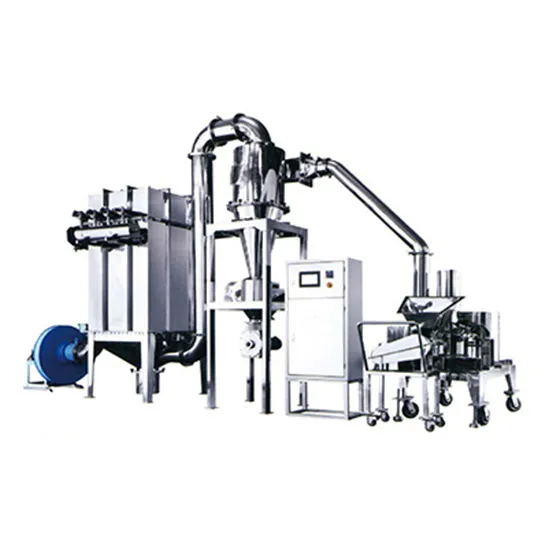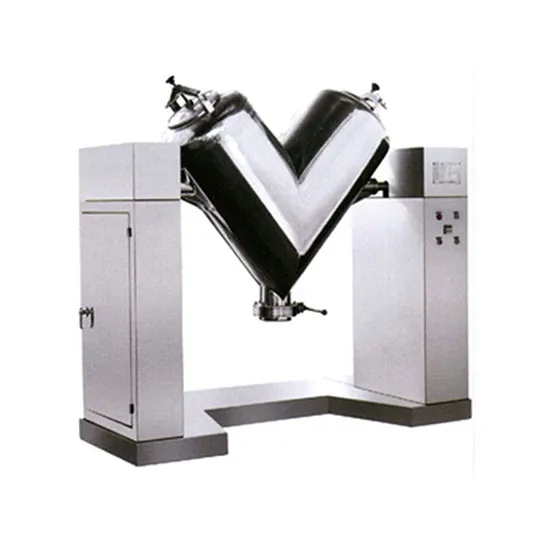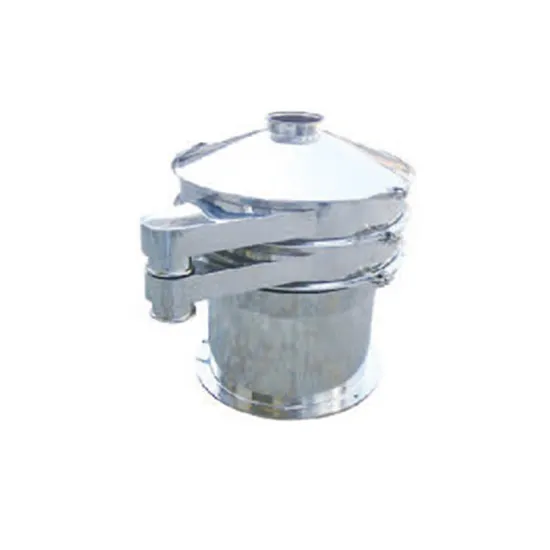NEWS
Revolutionizing Pharmaceutical Production with Advanced Granulation Machines
Dec 02,2023
Table of Contents:
1. Introduction: Enhancing Pharmaceutical Production with Advanced Granulation Machines
2. What is Granulation in Pharmaceutical Production?
3. The Importance of Granulation in Pharmaceutical Manufacturing
4. Traditional Granulation Methods and Their Limitations
5. Introducing Advanced Granulation Machines: A Game-Changer in Pharmaceutical Production
6. Benefits of Advanced Granulation Machines
6.1 Improved Efficiency and Productivity
6.2 Enhanced Quality Control
6.3 Cost Reduction and Waste Minimization
6.4 Flexibility and Customization
6.5 Compliance with Regulatory Standards
7. Latest Technological Advancements in Granulation Machines
7.1 Fluid Bed Granulation
7.2 High-Shear Granulation
7.3 Dry Granulation
7.4 Continuous Granulation
8. FAQs: Your Questions Answered
8.1 What is the role of granulation in pharmaceutical production?
8.2 How do advanced granulation machines improve efficiency?
8.3 Are granulation machines customizable for specific pharmaceutical formulations?
8.4 What are the compliance requirements for pharmaceutical granulation?
8.5 Can advanced granulation machines reduce production costs?
9. Conclusion: Embracing the Future of Pharmaceutical Production with Advanced Granulation Machines
1. Introduction: Enhancing Pharmaceutical Production with Advanced Granulation Machines
In the rapidly evolving pharmaceutical industry, advanced granulation machines have emerged as a groundbreaking technology that revolutionizes the manufacturing process. These machines are designed to optimize efficiency, ensure quality control, and enable customization for various pharmaceutical formulations.
2. What is Granulation in Pharmaceutical Production?
Granulation is a crucial step in the pharmaceutical production process, involving the formation of granules by binding fine particles together. This process enhances the flowability, compressibility, and uniformity of the final product, making it easier to manufacture tablets, capsules, and other dosage forms.
3. The Importance of Granulation in Pharmaceutical Manufacturing
Granulation plays a vital role in pharmaceutical manufacturing by improving the physical properties of the drug formulation. It enhances homogeneity, reduces dust formation, and enhances the stability of active ingredients. Furthermore, granulation enables proper control over drug release, making it essential for producing controlled-release medications.
4. Traditional Granulation Methods and Their Limitations
Traditional granulation methods, such as wet granulation and dry granulation, have been widely used in the pharmaceutical industry. However, these methods come with certain limitations. Wet granulation requires a longer processing time, involves the use of large amounts of solvents, and may lead to inconsistent granule properties. Dry granulation, on the other hand, poses challenges in achieving uniform granule size and can result in product losses during compression.
5. Introducing Advanced Granulation Machines: A Game-Changer in Pharmaceutical Production
Advanced granulation machines offer innovative solutions to overcome the limitations of traditional methods. These machines integrate cutting-edge technologies and automation, allowing for precise control over granulation parameters and ensuring uniform granule size, shape, and density.
6. Benefits of Advanced Granulation Machines
6.1 Improved Efficiency and Productivity
Advanced granulation machines significantly enhance production efficiency by reducing processing time and minimizing production downtime. With automated controls and continuous processing capabilities, these machines streamline the manufacturing process, reducing the need for manual intervention.
6.2 Enhanced Quality Control
Quality control is paramount in pharmaceutical production, and advanced granulation machines offer superior control over critical parameters such as granule size, hardness, and moisture content. This ensures consistent product quality and minimizes the risk of batch failures or variations.
6.3 Cost Reduction and Waste Minimization
Advanced granulation machines optimize material usage, reducing waste generation and minimizing production costs. These machines are designed to handle smaller batch sizes, allowing manufacturers to produce pharmaceuticals in a more cost-effective manner, especially for niche or personalized formulations.
6.4 Flexibility and Customization
Pharmaceutical manufacturers often require customized formulations to meet specific patient needs. Advanced granulation machines offer flexibility in adjusting formulation parameters, enabling the production of tailored medications with precise drug release profiles, dosage forms, and characteristics.
6.5 Compliance with Regulatory Standards
Pharmaceutical production must comply with stringent regulatory standards. Advanced granulation machines adhere to these regulations by ensuring consistent product quality, accurate documentation, and traceability throughout the manufacturing process.
7. Latest Technological Advancements in Granulation Machines
7.1 Fluid Bed Granulation
Fluid bed granulation is a widely adopted technology that facilitates the formation of granules using a fluidization process. It offers excellent control over granule properties and is particularly suitable for moisture-sensitive or heat-sensitive drugs.
7.2 High-Shear Granulation
High-shear granulation involves the use of high-speed mixing blades to create granules. This technology enables rapid granulation and is effective for producing formulations with low-dose active ingredients.
7.3 Dry Granulation
Dry granulation eliminates the need for solvents and involves the compaction of powder blends into ribbons or briquettes, followed by milling and sieving to obtain granules. This method is ideal for moisture-sensitive drugs or formulations containing heat-sensitive ingredients.
7.4 Continuous Granulation
Continuous granulation offers uninterrupted production, eliminating the need for batch processing. It enables real-time monitoring and control, ensuring consistent granule properties and reducing manufacturing time.
8. FAQs: Your Questions Answered
8.1 What is the role of granulation in pharmaceutical production?
Granulation plays a crucial role by improving the flowability, compressibility, and uniformity of pharmaceutical formulations, thereby facilitating the production of tablets, capsules, and other dosage forms.
8.2 How do advanced granulation machines improve efficiency?
Advanced granulation machines incorporate automation and advanced control systems, reducing processing time, minimizing downtime, and optimizing production efficiency.
8.3 Are granulation machines customizable for specific pharmaceutical formulations?
Yes, advanced granulation machines offer flexibility and customization options, allowing pharmaceutical manufacturers to tailor formulations according to specific requirements.
8.4 What are the compliance requirements for pharmaceutical granulation?
Pharmaceutical granulation must adhere to strict regulatory standards, ensuring consistent product quality, accurate documentation, and traceability throughout the manufacturing process.
8.5 Can advanced granulation machines reduce production costs?
Yes, advanced granulation machines optimize material usage, reduce waste generation, and enable production in smaller batch sizes, resulting in cost savings for pharmaceutical manufacturers.
9. Conclusion: Embracing the Future of Pharmaceutical Production with Advanced Granulation Machines
Advanced granulation machines are transforming the pharmaceutical production landscape, offering improved efficiency, enhanced quality control, and customization capabilities. By harnessing the latest technological advancements in granulation, pharmaceutical manufacturers can meet the evolving demands of the industry and deliver safe, effective, and high-quality medications to patients worldwide.
1. Introduction: Enhancing Pharmaceutical Production with Advanced Granulation Machines
2. What is Granulation in Pharmaceutical Production?
3. The Importance of Granulation in Pharmaceutical Manufacturing
4. Traditional Granulation Methods and Their Limitations
5. Introducing Advanced Granulation Machines: A Game-Changer in Pharmaceutical Production
6. Benefits of Advanced Granulation Machines
6.1 Improved Efficiency and Productivity
6.2 Enhanced Quality Control
6.3 Cost Reduction and Waste Minimization
6.4 Flexibility and Customization
6.5 Compliance with Regulatory Standards
7. Latest Technological Advancements in Granulation Machines
7.1 Fluid Bed Granulation
7.2 High-Shear Granulation
7.3 Dry Granulation
7.4 Continuous Granulation
8. FAQs: Your Questions Answered
8.1 What is the role of granulation in pharmaceutical production?
8.2 How do advanced granulation machines improve efficiency?
8.3 Are granulation machines customizable for specific pharmaceutical formulations?
8.4 What are the compliance requirements for pharmaceutical granulation?
8.5 Can advanced granulation machines reduce production costs?
9. Conclusion: Embracing the Future of Pharmaceutical Production with Advanced Granulation Machines
1. Introduction: Enhancing Pharmaceutical Production with Advanced Granulation Machines
In the rapidly evolving pharmaceutical industry, advanced granulation machines have emerged as a groundbreaking technology that revolutionizes the manufacturing process. These machines are designed to optimize efficiency, ensure quality control, and enable customization for various pharmaceutical formulations.
2. What is Granulation in Pharmaceutical Production?
Granulation is a crucial step in the pharmaceutical production process, involving the formation of granules by binding fine particles together. This process enhances the flowability, compressibility, and uniformity of the final product, making it easier to manufacture tablets, capsules, and other dosage forms.
3. The Importance of Granulation in Pharmaceutical Manufacturing
Granulation plays a vital role in pharmaceutical manufacturing by improving the physical properties of the drug formulation. It enhances homogeneity, reduces dust formation, and enhances the stability of active ingredients. Furthermore, granulation enables proper control over drug release, making it essential for producing controlled-release medications.
4. Traditional Granulation Methods and Their Limitations
Traditional granulation methods, such as wet granulation and dry granulation, have been widely used in the pharmaceutical industry. However, these methods come with certain limitations. Wet granulation requires a longer processing time, involves the use of large amounts of solvents, and may lead to inconsistent granule properties. Dry granulation, on the other hand, poses challenges in achieving uniform granule size and can result in product losses during compression.
5. Introducing Advanced Granulation Machines: A Game-Changer in Pharmaceutical Production
Advanced granulation machines offer innovative solutions to overcome the limitations of traditional methods. These machines integrate cutting-edge technologies and automation, allowing for precise control over granulation parameters and ensuring uniform granule size, shape, and density.
6. Benefits of Advanced Granulation Machines
6.1 Improved Efficiency and Productivity
Advanced granulation machines significantly enhance production efficiency by reducing processing time and minimizing production downtime. With automated controls and continuous processing capabilities, these machines streamline the manufacturing process, reducing the need for manual intervention.
6.2 Enhanced Quality Control
Quality control is paramount in pharmaceutical production, and advanced granulation machines offer superior control over critical parameters such as granule size, hardness, and moisture content. This ensures consistent product quality and minimizes the risk of batch failures or variations.
6.3 Cost Reduction and Waste Minimization
Advanced granulation machines optimize material usage, reducing waste generation and minimizing production costs. These machines are designed to handle smaller batch sizes, allowing manufacturers to produce pharmaceuticals in a more cost-effective manner, especially for niche or personalized formulations.
6.4 Flexibility and Customization
Pharmaceutical manufacturers often require customized formulations to meet specific patient needs. Advanced granulation machines offer flexibility in adjusting formulation parameters, enabling the production of tailored medications with precise drug release profiles, dosage forms, and characteristics.
6.5 Compliance with Regulatory Standards
Pharmaceutical production must comply with stringent regulatory standards. Advanced granulation machines adhere to these regulations by ensuring consistent product quality, accurate documentation, and traceability throughout the manufacturing process.
7. Latest Technological Advancements in Granulation Machines
7.1 Fluid Bed Granulation
Fluid bed granulation is a widely adopted technology that facilitates the formation of granules using a fluidization process. It offers excellent control over granule properties and is particularly suitable for moisture-sensitive or heat-sensitive drugs.
7.2 High-Shear Granulation
High-shear granulation involves the use of high-speed mixing blades to create granules. This technology enables rapid granulation and is effective for producing formulations with low-dose active ingredients.
7.3 Dry Granulation
Dry granulation eliminates the need for solvents and involves the compaction of powder blends into ribbons or briquettes, followed by milling and sieving to obtain granules. This method is ideal for moisture-sensitive drugs or formulations containing heat-sensitive ingredients.
7.4 Continuous Granulation
Continuous granulation offers uninterrupted production, eliminating the need for batch processing. It enables real-time monitoring and control, ensuring consistent granule properties and reducing manufacturing time.
8. FAQs: Your Questions Answered
8.1 What is the role of granulation in pharmaceutical production?
Granulation plays a crucial role by improving the flowability, compressibility, and uniformity of pharmaceutical formulations, thereby facilitating the production of tablets, capsules, and other dosage forms.
8.2 How do advanced granulation machines improve efficiency?
Advanced granulation machines incorporate automation and advanced control systems, reducing processing time, minimizing downtime, and optimizing production efficiency.
8.3 Are granulation machines customizable for specific pharmaceutical formulations?
Yes, advanced granulation machines offer flexibility and customization options, allowing pharmaceutical manufacturers to tailor formulations according to specific requirements.
8.4 What are the compliance requirements for pharmaceutical granulation?
Pharmaceutical granulation must adhere to strict regulatory standards, ensuring consistent product quality, accurate documentation, and traceability throughout the manufacturing process.
8.5 Can advanced granulation machines reduce production costs?
Yes, advanced granulation machines optimize material usage, reduce waste generation, and enable production in smaller batch sizes, resulting in cost savings for pharmaceutical manufacturers.
9. Conclusion: Embracing the Future of Pharmaceutical Production with Advanced Granulation Machines
Advanced granulation machines are transforming the pharmaceutical production landscape, offering improved efficiency, enhanced quality control, and customization capabilities. By harnessing the latest technological advancements in granulation, pharmaceutical manufacturers can meet the evolving demands of the industry and deliver safe, effective, and high-quality medications to patients worldwide.
More News










